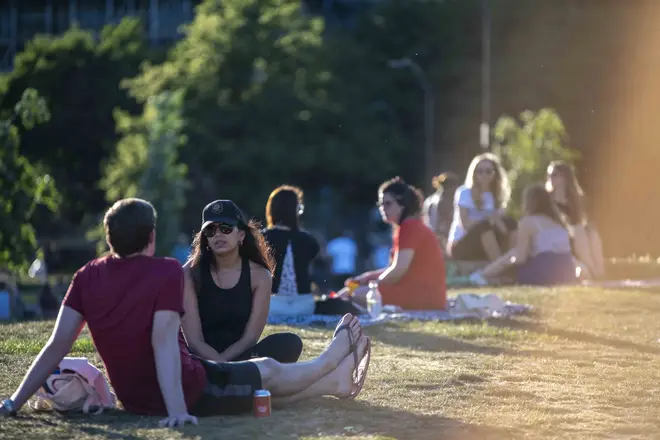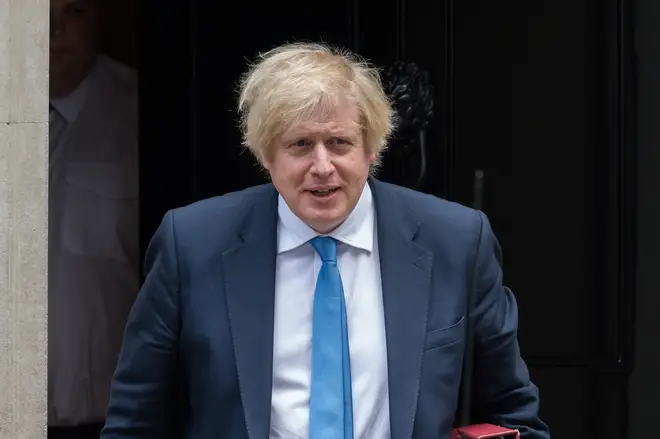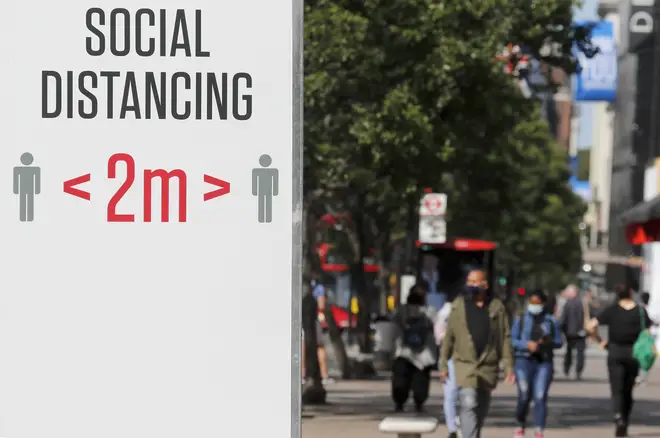
Clive Bull 1am - 4am
22 June 2020, 17:05

The government has announced plans to allow social bubbles to be expanded further, as the coronavirus lockdown continues to ease.
From July 6, anyone in England shielding from coronavirus will be able to gather in groups of up to six people outdoors and form a "support bubble" with another household.
At present only people living alone or single parent households are allowed to form "support bubbles" with one other household.
Health Secretary Matt Hancock has said the Government shielding advice will remain in place until the end of July, when people will no longer be advised to shield.
From August the first, shielding will be paused altogether and people will be allowed to go outside while maintaining social distancing.
Hailing the resilience of those who have been shielding, the Health Secretary confirmed they will be able to spend time outdoors in a group of up to six people including those outside of their household, while maintaining social distancing.
People who are shielding and live alone or are single parents with children will also be able to create a "support bubble" with one other household of any size, following the same rules already in place for the wider population.
The government also announced that from 1 August, those who need to work and cannot do so from home will be able to return to work as long as their workplace is COVID secure.

From Saturday 1 August, guidance will also be further relaxed so clinically extremely vulnerable people will no longer be advised to shield, but support will remain available from NHS volunteers and local councils.
Vulnerable people will retain their priority for supermarket delivery slots, and still be able to access help with shopping, medication, phone calls and transport to medical appointments.
Deputy Chief Medical Officer Dr Jenny Harries said: “Shielding was introduced to safeguard those who, at the start of the epidemic in the UK, were thought to be most clinically vulnerable in our communities. We know how difficult this period has been and the impact shielding has had on many people’s mental health.
“The prevalence of the virus in the community is now lower and chances of getting infected are reduced, so we believe it is the right time to relax some of the advice so people can start to regain a degree of normality once more in their daily lives.
“People should continue to follow social distancing guidance when outside their homes, as well as frequently washing their hands, to minimise the risk of becoming infected. We will continue to monitor the evidence closely and adjust the advice accordingly if there are any changes in the rates of infection that could impact on this group.”
Health Secretary Matt Hancock said: “I want to thank all those who have been shielding for so many weeks for their commitment to the shielding programme. I know this has been incredibly tough. Shielding has involved not leaving your house for months, not seeing people you care about, not being able to wander to the park for some fresh air, or even pop to the shops for something you need. This sacrifice has been for a purpose, and I want to thank every single one of you.
“We knew it was a difficult ask, but these measures have been vital in saving lives. Now, with infection rates continuing to fall in our communities, our medical experts have advised that we can now ease some of these measures, while keeping people safe.”

It is also expected that Mr Johnson will lay out his plans to further ease lockdown restrictions on Tuesday.
Health Secretary Matt Hancock said over the weekend that England is "clearly on track" to ease lockdown restrictions after repeated calls to reduce the two-metre rule to one metre.
And on Saturday, Chancellor Rishi Sunak hinted that Boris Johnson's review "will make an enormous difference" to businesses.
The Chancellor strongly signalled it will allow the Government to ease the measure in England.
"The outcome of that review will be announced this week. Obviously that's something that will make an enormous difference I think to many businesses who are keen to see a change," he told reporters during a visit to shops in North Yorkshire.
"Obviously we need to go through that review but I'm very understanding of the calls for action on that, particularly for our hospitality industry, for our pubs, for our restaurants, (they) are keen to see if there's some change that can be made there."

How pubs can safely reopen after lockdown
The Prime Minister is discussing the proposed changes with the Covid-19 strategy committee on Monday afternoon, attended by chief scientific adviser Sir Patrick Vallance and chief medical officer for England Professor Chris Whitty.
He will then outline plans to Parliament on Tuesday for pubs, restaurants, hotels and hairdressers to reopen in England from July 4, and a likely loosening of the distancing guidance to boost the economic restart.
On Sunday, the PM said the progress made in the fight against coronavirus during three months of lockdown mean "it will be possible to open up more".
"The disease is increasingly under control and I just want people to reflect on that important fact," he added in a Downing Street interview.
Guidance will be published for each sector on how businesses can reduce the spread of Covid-19 when they reopen.

Will the 2 metre rule be relaxed?
The public are also expected to be warned that the newest relaxation of rules will be the first to be reversed if there are widespread breaches that prompt the virus to spread uncontrollably.
A No 10 spokesman said: "We will not hesitate to put the handbrake on to stop the virus running out of control."
Downing Street said also said on Monday it would keep Sunday trading rules "under review" following reports it had dropped plans to change them in order to boost the economic recovery.
The Prime Minister's official spokesman, when asked whether plans to widen Sunday trading had been ditched, said: "We have said we will keep measures such as extending Sunday trading hours under review as they can support shops with social distancing and allow shoppers to buy food and other items more conveniently."
Matt Hancock gave perspex screens, masks and altered seating arrangements as examples of measures to mitigate the risk of spreading coronavirus if the two-metre rule is relaxed.
And he floated the idea that punters at pubs and bars could have to sign a guest book with their names and contact details so they could be swiftly traced if they come into contact with an infection.
Shadow health secretary Jonathan Ashworth said Labour would support a reduction of the two-metre rule "under certain circumstances", including the strengthening of other protections such as masks.